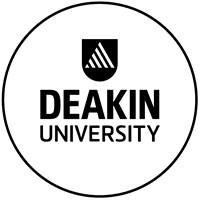Assoc Prof J Pringle
No more applications being accepted
Funded PhD Project (Students Worldwide)
About the Project
Ionic electrolytes such as ionic liquids and organic ionic plastic crystals can be highly advantageous for making safer electrolytes, by eliminating the need for the volatile organic solvents used in many electrochemical energy generation and storage devices. These ionic materials can have good electrochemical and thermal stability, are non-volatile and can be used to make quasi-solid state electrolytes to eliminate solvent leakage.
At Deakin, we are researching the development and use of ionic electrolytes for a range of different battery technologies and thermal energy harvesting devices. Such electrolyte material development is crucial in the advancement of better energy generation and storage technologies and to help reduce the global dependence on fossil fuels.
The projects will develop new ionic electrolytes, both liquid and solid, with application in a range of electrochemical devices. This involves investigating the thermal and electrochemical properties of the electrolytes and their composites before assessing device performance.
This project would suit applicants with a chemistry, electrochemistry or materials engineering background and with good English language qualifications. The students will be based at Deakin University’s Institute for Frontier Materials on the Melbourne Burwood Campus, which has state-of-the art electrochemistry and characterisation facilities and a very supportive research environment.
Funding Notes
The length of the PhD program is typically 3-3.5 years. The stipend is approx. AUD$27K/year tax free.
Essential requirements:
• BEng(Hons), BSc(Hons) or MSc (preferred) in materials engineering, materials science, chemistry, physics or biological sciences
• Demonstrated ability to conduct scientific research through either refereed journal publications or excellent project marks
• English language requirement - IELTS minimum 6.5, with no band below 6
• Evidence of strong oral and written communication skills
• Demonstrated ability to work independently and to meet deadlines
• Academic professional referees and/or previous supervisors’ contact details.

 Continue with Facebook
Continue with Facebook

